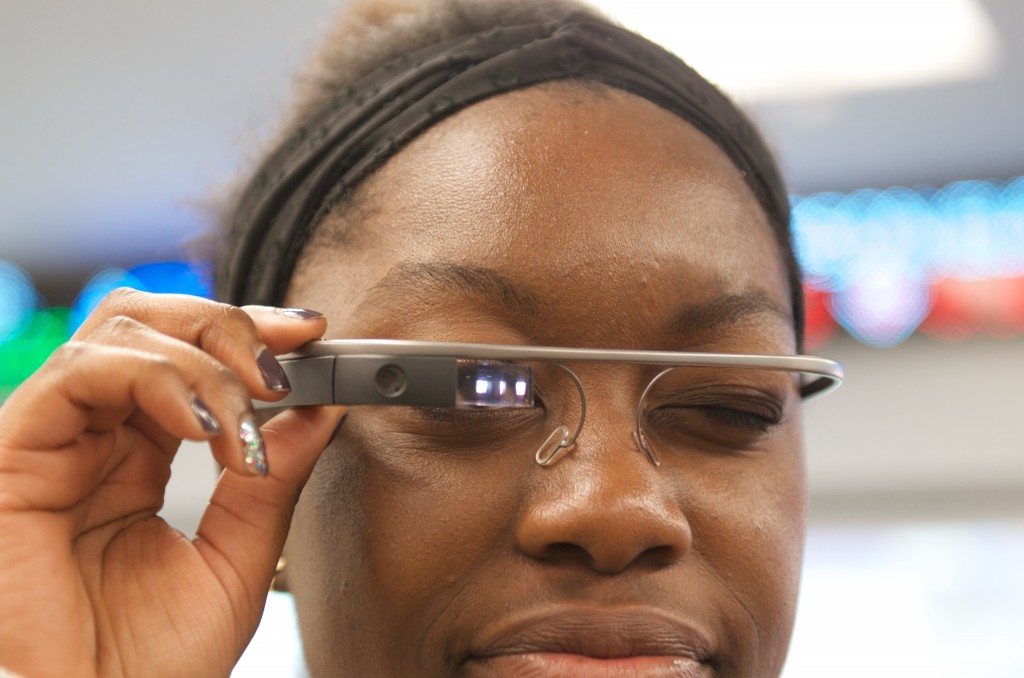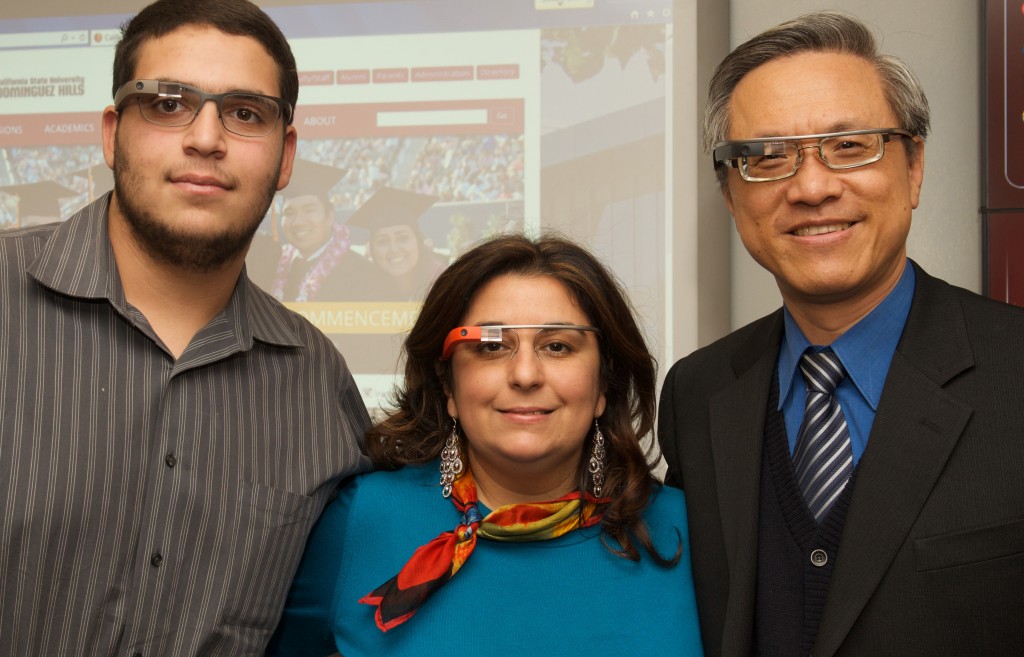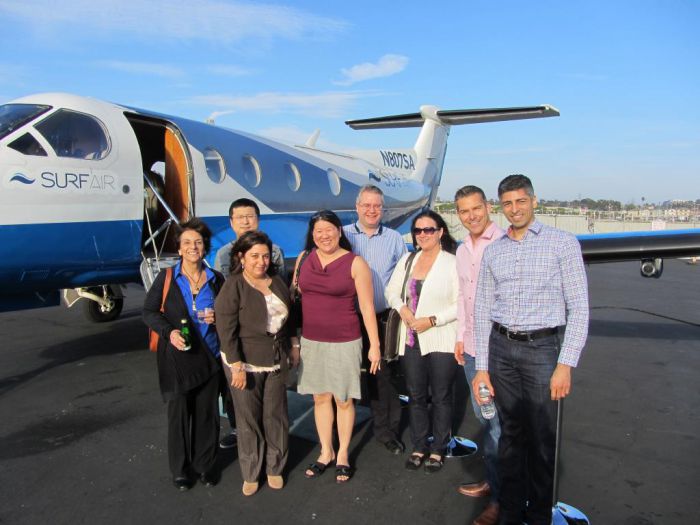Students along with faculty and staff from California State University, Dominguez Hills were given a glimpse into the future, if not through rose-colored glasses certainly through futuristic ones.
David Zakariaie, CEO of Glassic, a private company that creates applications for Google Glass, provided an overview of the so-named deviced, its components, capabilities, and special considerations such as battery life and privacy issues during a presentation hosted by the Hospitality Technology Research Institute (HTRI) in the university’s Financial Market Trading and Business Simulation Lab.

As part of the Feb. 5 demonstration attendees were able to experience for themselves the futuristic eyewear.
“It’s very exciting because I cannot even imagine the limitations,” said associate professor of management and HTRI director Natasa Christodoulidou.
Zakariaie outlined fields where the new technology can be applied: education, medicine (including dermatological diagnoses and substance abuse monitoring), science and technology, military and defense, aviation, manufacturing, quality management, real estate, market research, and finance to name a few known possible applications.
Describing a scenario to illustrate how the device could be used for remote consultation, he said, “If there’s a paramedic in the field, and there’s a dire situation that the patient won’t make it to the hospital, it can remotely send all the vital signs on a live video stream so while the patient’s in the ambulance, the doctors can guide the paramedics through the video stream, and through augmentative reality certain procedures paramedics can do for the patient to survive.”

Plans are being considered for CSU Dominguez Hills students to become more involved in the development of the Glassic applications as it gets ready to go to market.
“We’re going to have a group of students and we hopefully will start off after the summer or this summer with internships and then maybe doing the test applications here on campus,” Christodoulidou. “Our students will be pioneers.”
To provide students, staff and faculty insight into other types of cutting-edge business enterprise, in February HTRI also hosted representatives from two additional innovative companies who discussed details of their business model and product.
On Feb. 19, Dario Mutabdzija, CEO and founder of the Palo Alto-based BlueSeed company, visited the university to discuss his brainchild, a “city on the water” which is still in the planning stage.
Mutabdzija explained steps he is taking to develop a community for startup entrepreneurs that would be located on a repurposed cruise ship stationed on international waters 12 nautical miles from the coast of San Francisco.
The offshore community will allow startup entrepreneurs from anywhere in the world to launch or grow their companies near Silicon Valley, without the need for a U.S. work visa, Christodoulidou said, and will feature working and living spaces, complete with all the amenities necessary for residential living and business conduct with long-term timelines. Transportation to the mainland via ferryboat and unprecedented access to Silicon Valley leaders and resources are also being touted.
Some students who plan to own or have owned a small business had questions for Mutabdzija, including what criteria is used to select resident startup companies (Mutabdzija cited viability as one selection criterion) as well as those businesses that will provide services on the floating community.
“I want to hear more, like what are the workshops they’re going to be having, are children allowed on board, …how expensive is it?” said Patricia Gatlin, a graduate humanities student. “I wonder about if there’s funding and scholarships for those who can’t afford that kind of lifestyle because there’s a lot of great ideas, but they’re not properly funded or properly supported they’re likely to fail. I owned a small business and I helped my brother run a small business now, so I know how hard it can be.”
So far, more than 1500 entrepreneurs from 500 startups in 70+ countries have expressed interest in living on Blueseed.

In the third presentation of the month, on Feb. 26., top executives from SurfAir, a Santa Monica-based entrepreneurial private airline membership company launched in 2013, shared details of their product innovation in the airline industry.
“I think it is important for our students to be exposed to “real life” applications of what we teach them in the classroom while at the same time it gives them am opportunity to network. The Hospitality Technology Research Institute gives them this opportunity to expand their business horizons,” said Christodoulidou, who organized all three events.
Like Google Glass and BlueSeed, SurfAir has been widely featured in television and other media outlets.
For more information about the Hospitality Technology Research Institute at CSU Dominguez Hills, visit www4.csudh.edu/cbapp.